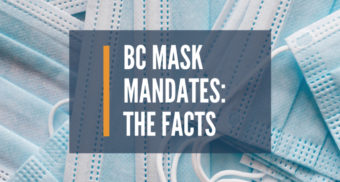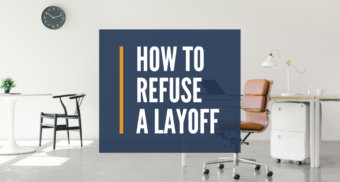How to respond if your boss pressures you to get the COVID-19 vaccine

Although federal and provincial governments in Canada are strongly recommending that individuals get the vaccine against COVID-19, it is currently not mandatory. In the Canadian workplace, with few exceptions (such as long-term care homes in Ontario), employers are generally not obligated to mandate employee vaccination as a part of their duty to maintain a safe work environment. Some employers, however, have decided to voluntarily mandate vaccination among their staff.
If you are facing pressure from your employer to get the vaccine or disclose your vaccination status, consider the following points.
1. Ask your employer why the information is necessary
If you are a person working remotely from home, or are in a work environment where social distancing is possible, ask your employer why they need the information from you need, and whether there is an applicable government order mandating vaccination.
Point out the safety measures already in place, and if applicable to your workplace, reaffirm your willingness to abide by COVID-19 protocols, such as masks and social distancing.
2. Advise your employer you are not comfortable disclosing personal medical information
Personal medical information is sensitive and should only be disclosed to an employer on a need-to-know basis. If despite the above, your employer is continuing to pressure you or harass you regarding your vaccination status, let them know that you are not comfortable disclosing your vaccination status as it is sensitive personal information.
WATCH: Employment lawyer Lior Samfiru spoke to Global News in a recent interview about the legal considerations surrounding mandatory COVID-19 vaccinations in the workplace.
3. If applicable, note any relevant medical conditions
If, despite the above, your employer is continuing to pressure you or threaten you with termination, and you decide that you are comfortable disclosing your vaccination status, consider whether you may have human rights protections as well.
For example, if you have concerns about whether it is medically safe for you to receive any of the COVID-19 vaccines, speak with your doctor. If your doctor has told you that for some reason, you have an underlying medical condition that makes it unsafe for you to receive certain vaccines or any of the vaccines currently available, ask for a signed letter from your doctor setting this out.
If you have obtained a medical note from your doctor that you cannot receive a vaccine due to medical reasons, you have a protected right under human rights legislation to be accommodated up to the point of “undue hardship”.
In most cases, your employer will have to accommodate you (for example, allowing you to work from home). Business inconvenience, concerns about customer preferences, or employee morale, are generally not enough for an employer to establish “undue hardship”. So, for example, if your employer refuses to accommodate you only because it is worried that its customers will be upset or uncomfortable, that would be a human rights violation.
4. If applicable, note any religious objections
Human rights statutes also protect individuals from discrimination on the basis of their religious beliefs or creed.
Generally speaking, those whose religions prohibit them from taking the COVID-19 vaccine will have a right to be accommodated up to the point of undue hardship, just like those who have a medical disability. To claim a religious exemption, you have to show that it is significantly connected to the religious doctrine. If you have a religious exemption, it is therefore advisable to get a signed note from your local religious leader and present this note to your employer.
The protection of political beliefs varies by jurisdiction.
Federal
The Canadian Human Rights Act does not provide protection to federally regulated employees who are discriminated against based on their political leanings.
Ontario and Alberta
Neither the Ontario Human Rights Code nor the Alberta Human Rights Act allow employees to claim discrimination on the basis of a political belief, nor is there such a right under the Canadian Human Rights Act for federally regulated employees.
British Columbia
The BC Human Rights Code does protect employees from discrimination on the basis of political belief.
Therefore, whether you can claim a political objection to COVID-19 vaccinations as a human right will depend on which province you live in and whether your employment is federally regulated.
5. Can you be fired for not getting a vaccine?
Your employer cannot force you to get the vaccine, and they cannot fire you for refusing to do so. Only the government has the power to make vaccines mandatory. The federal and various provincial governments have recently announced mandatory regulations for specific jobs or sectors. Beyond that, forcing employees to be vaccinated could lead to a human rights violation, not to mention a breach of privacy. An employee who is let go for this reason is likely owed full severance pay.
We created a quick questionnaire to give you a better idea as to whether or not your employer is allowed to mandate the COVID-19 vaccine for your workplace.
6. Always get legal advice
The safest way to navigate any situation where your job is being threatened is with the help of an employment lawyer. Every situation is different. The employment lawyers at Samfiru Tumarkin LLP can help you navigate whether you can assert a human rights exemption, and what you may be entitled to if you are fired for refusing vaccination.
Contact the most positively reviewed law firm in Canada to get the advice you, and the compensation you deserve.




